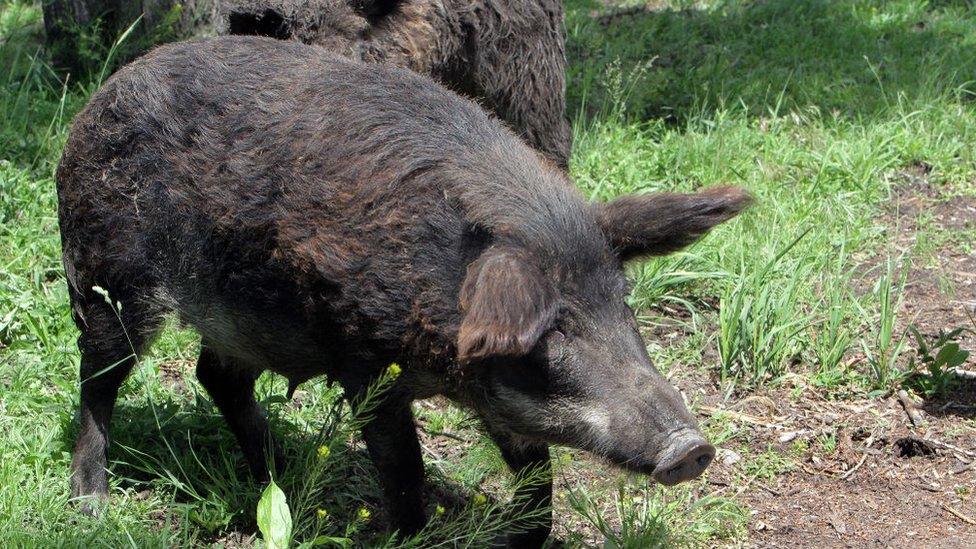Nuclear weapons testing cause of radioactivity in wild boars, study says
- Published

A new study has found that nuclear weapons tests during the Cold War are a major cause of high levels of radioactivity in central Europe's wild boar population.
The radioactivity found in wild boars has previously been blamed on the 1986 Chernobyl disaster.
But the new research concludes that earlier nuclear weapons testing in the 1960s is a significant cause.
Other wild animals' radioactivity levels have dropped over the years.
So many wondered why the wild pigs' contamination levels remained so high.
After testing meat from 48 boars in Germany's state of Bavaria, scientists from Vienna's University of Technology and Leibniz University of Hannover found that their radioactivity is to a significant degree caused by older, Cold War nuclear bomb blasts which are still affecting the soil in the area.
Writing in the Environmental Science and Technology journal, external, the scientists say that radioactive caesium from the tests have sunk into the earth, contaminating deer truffles - the food favoured by wild boars, who dig into the soil to find them.
But the truffles - and the subsequent contamination of wild boars - is unlikely to abate any time soon, the study says.
This is because more radioactive caesium from Chernobyl will seep further into the soil, further contaminating the truffles.
The boars' continued contamination threatens the Bavarian forests themselves, the study says: as the animals are not shot for their meat, their populations are growing unsustainably.
You may also be interested in:
Japanese authorities tackle an influx of wild boars around Fukushima
Related topics
- Published30 June 2021